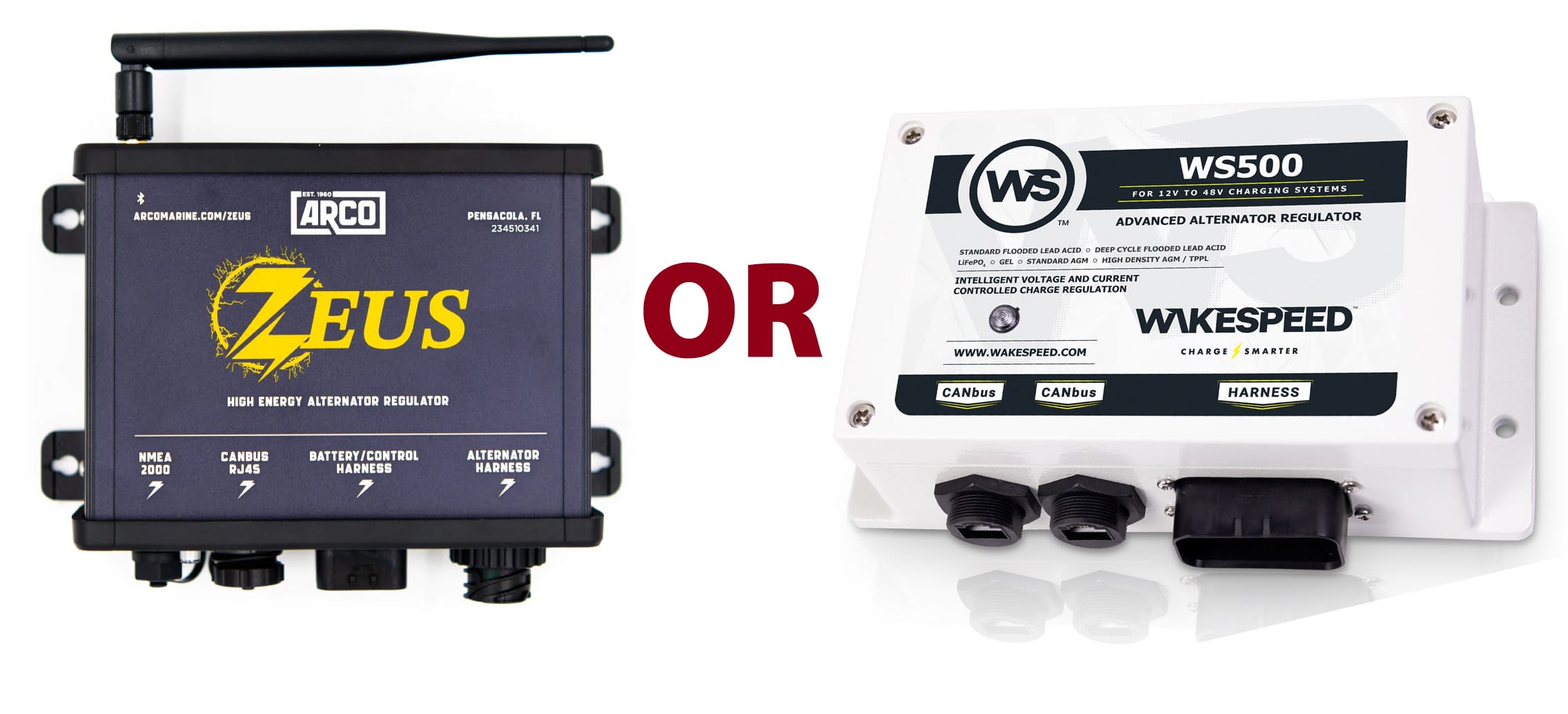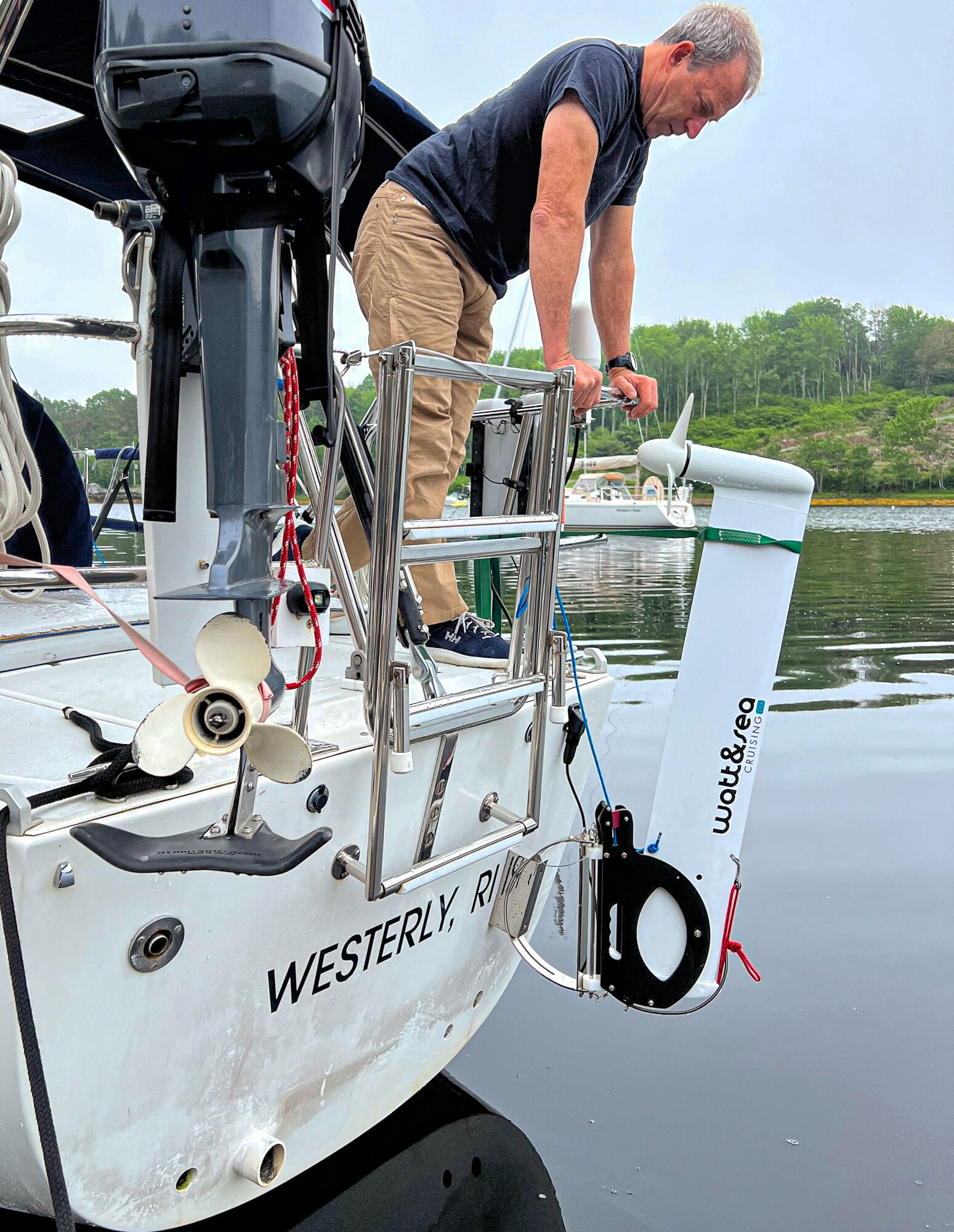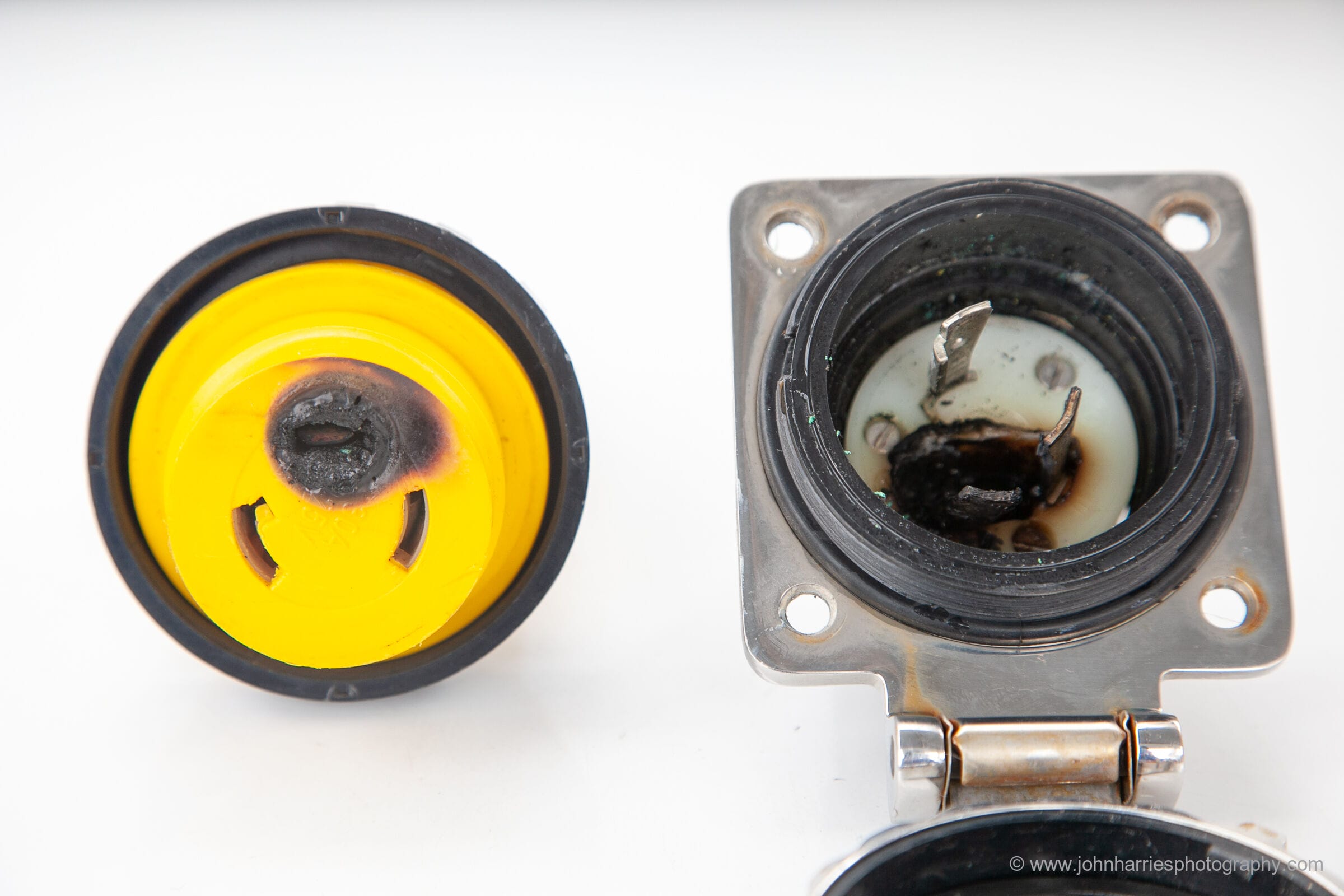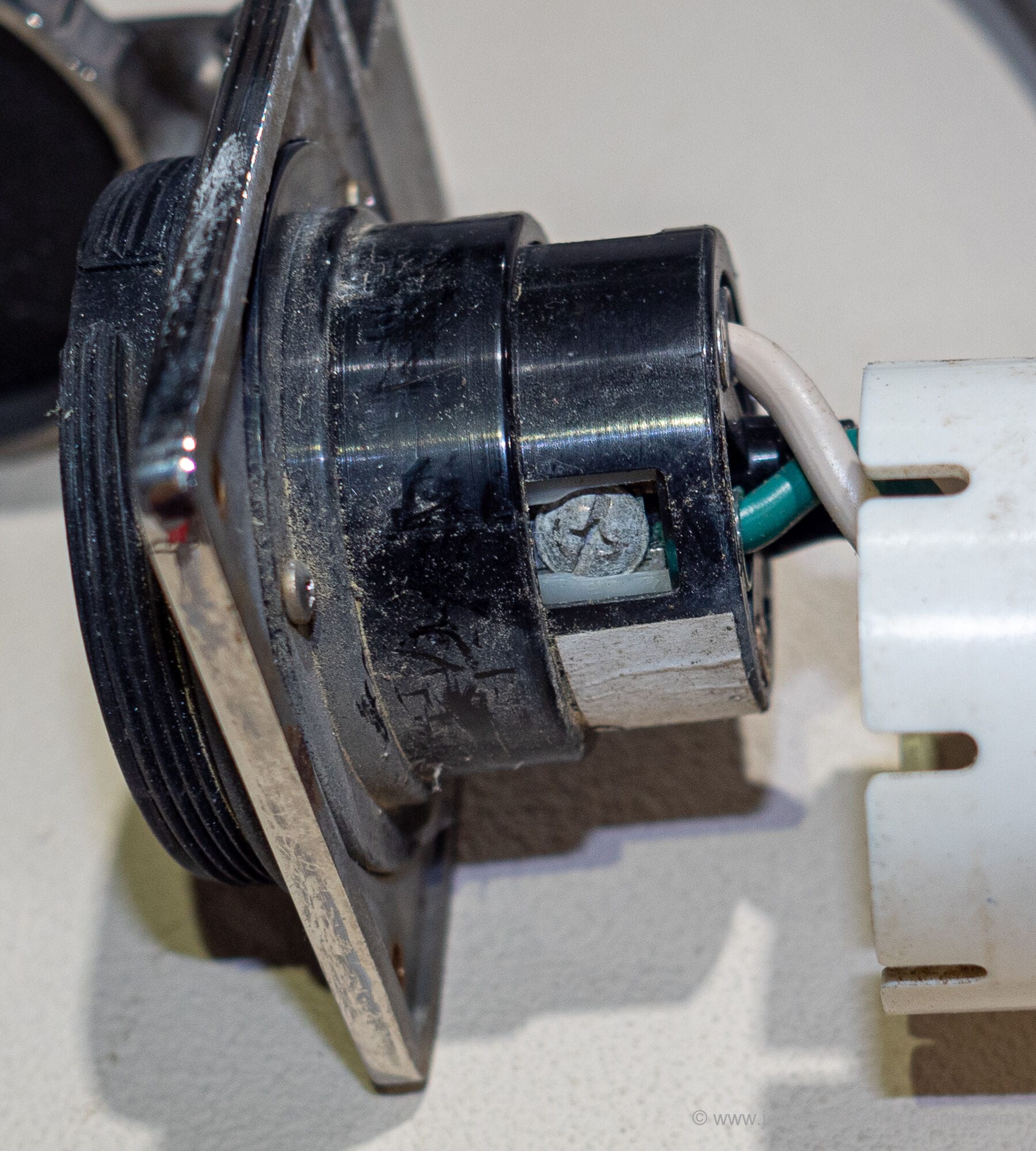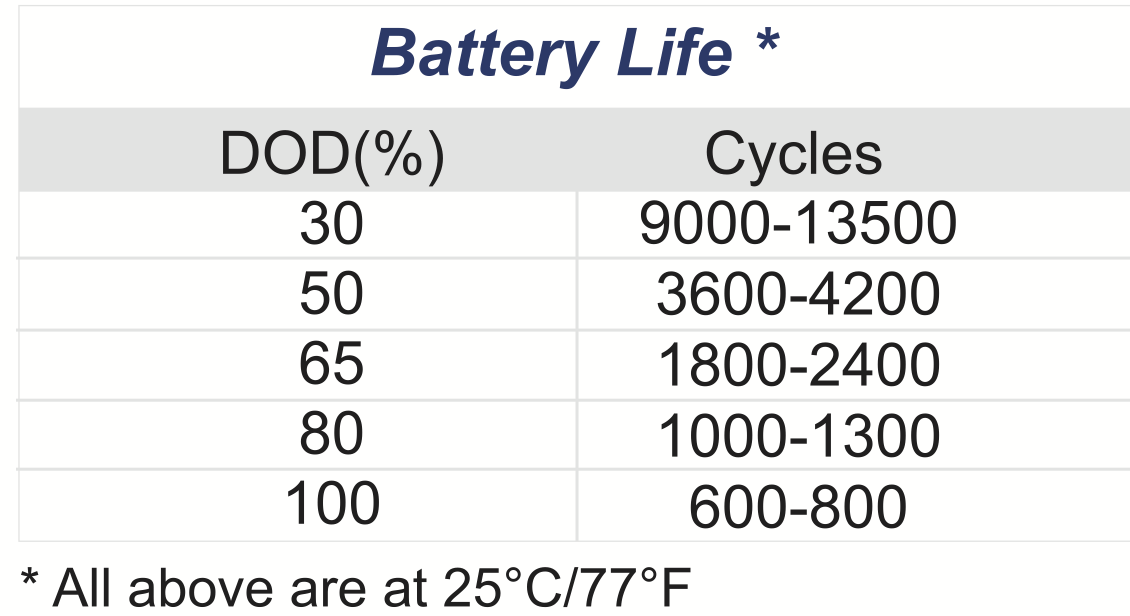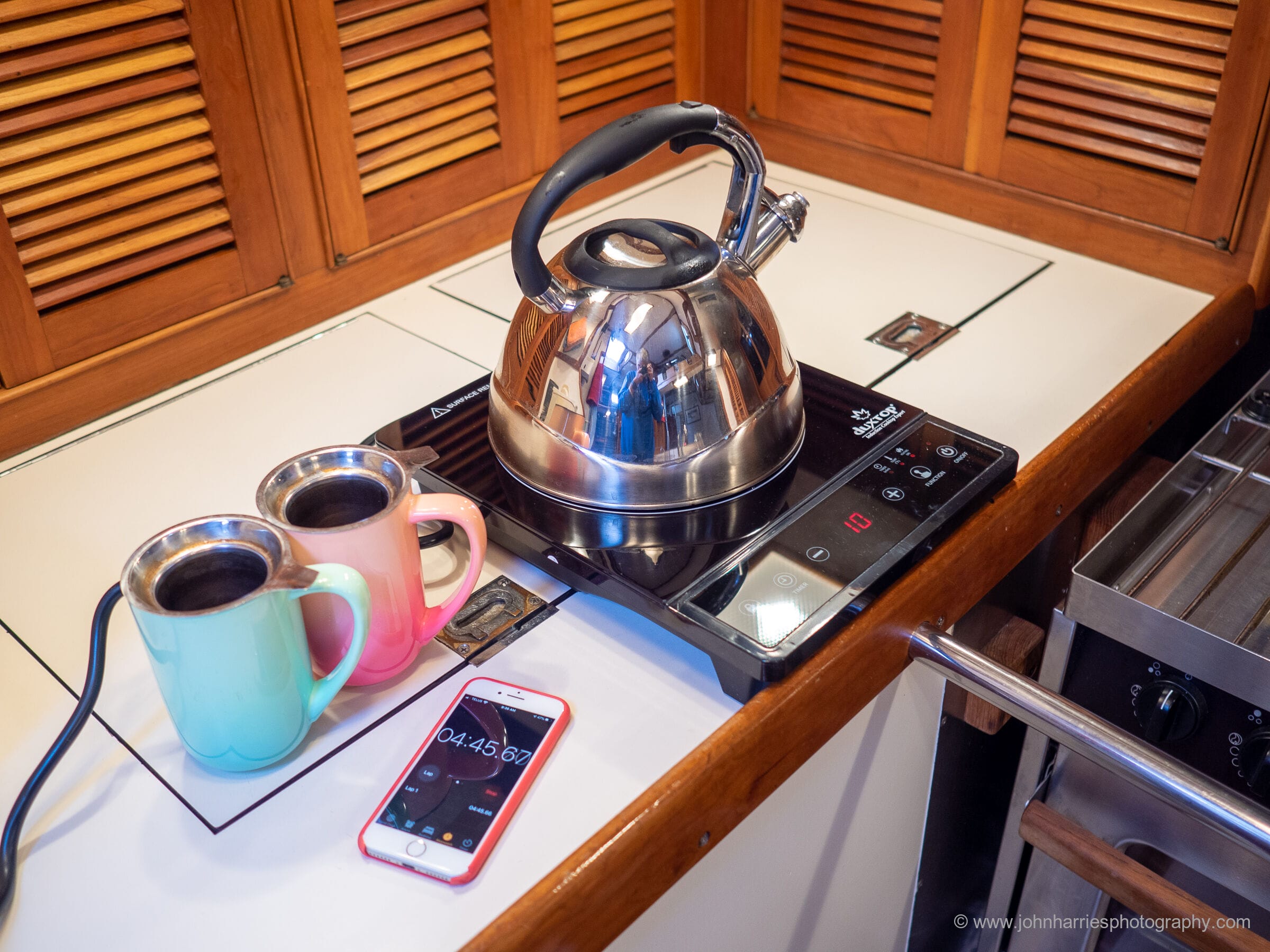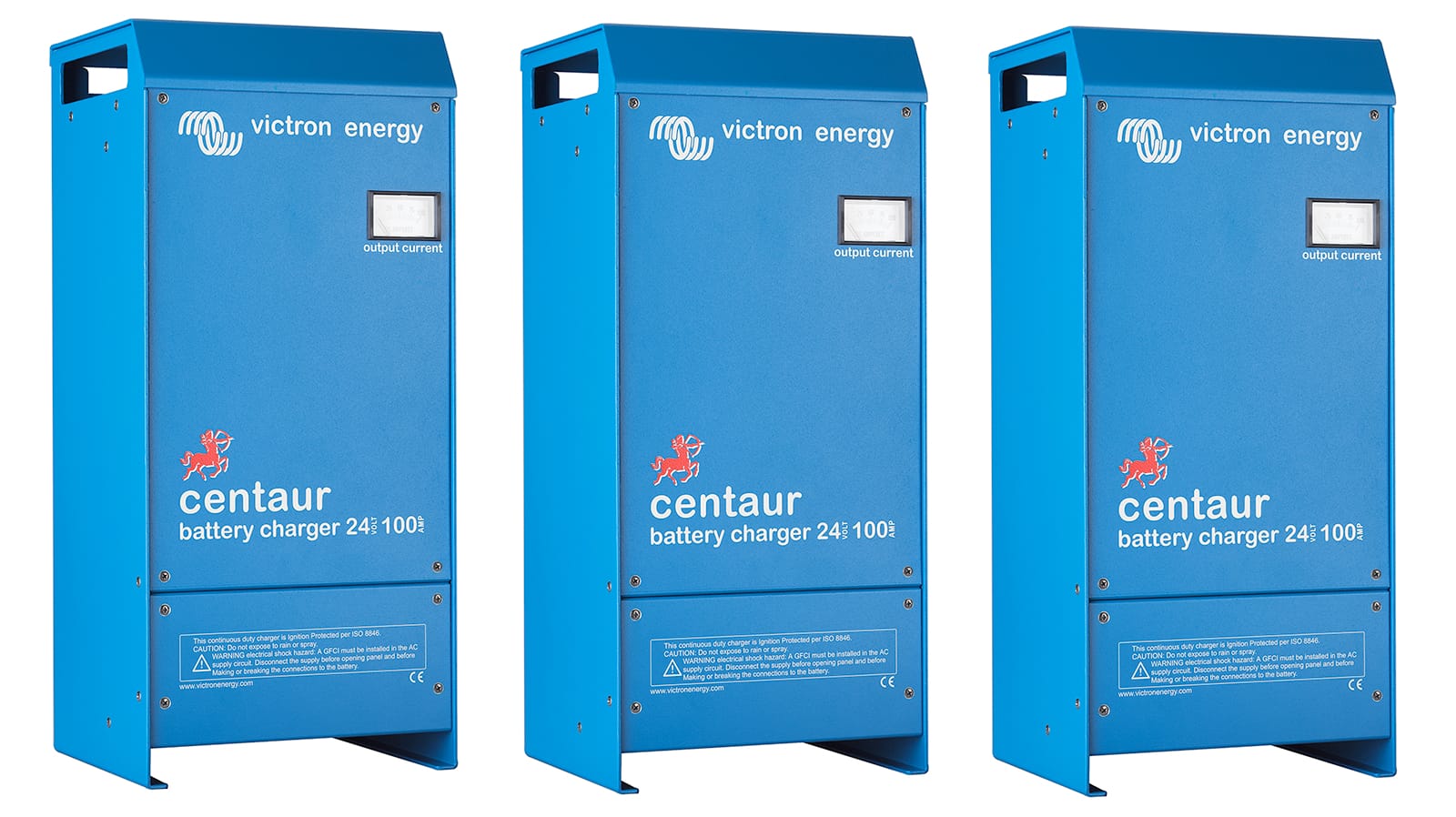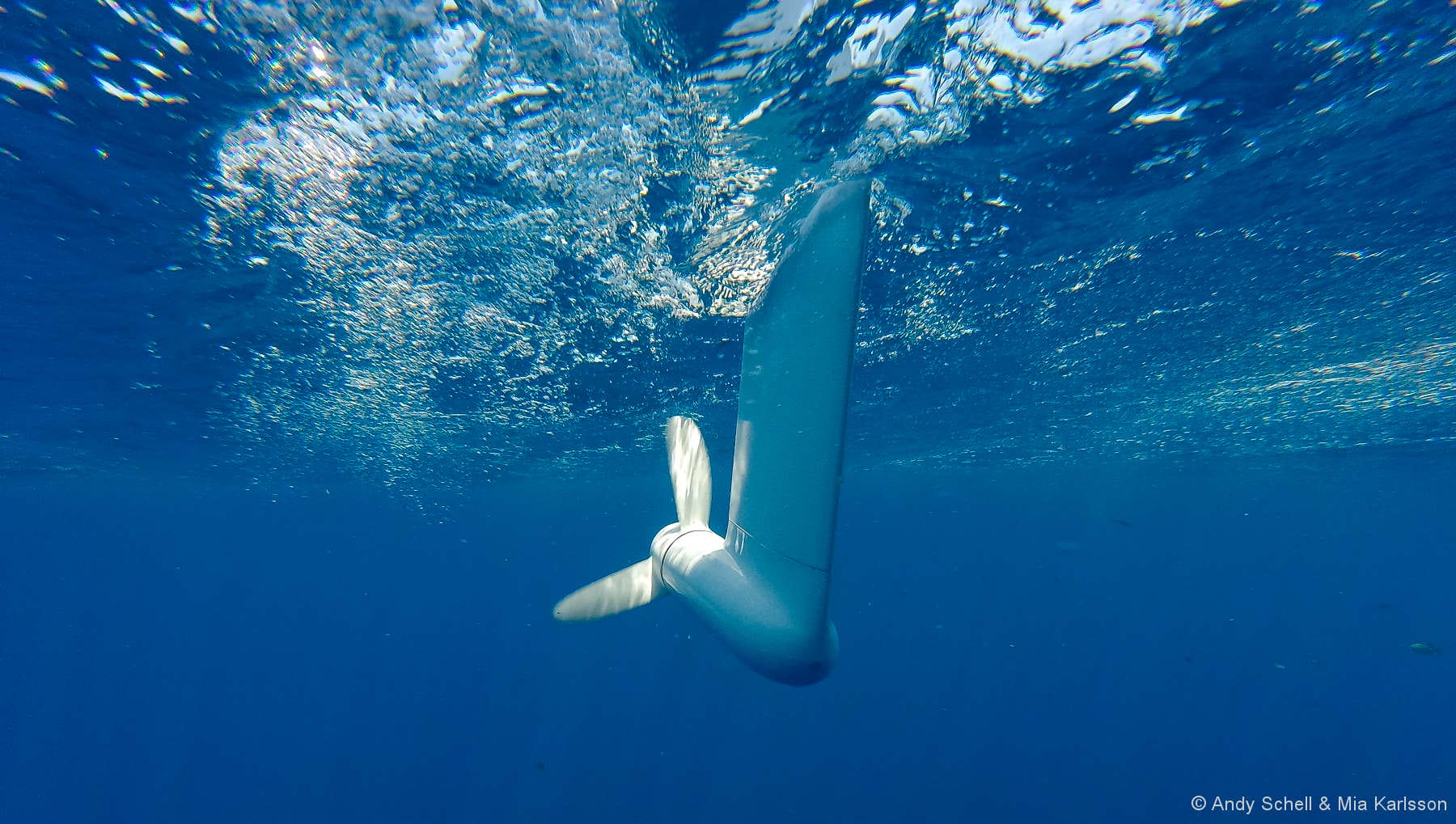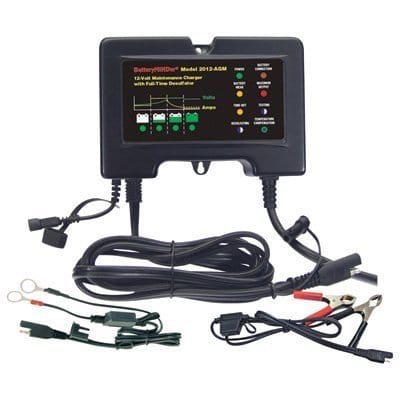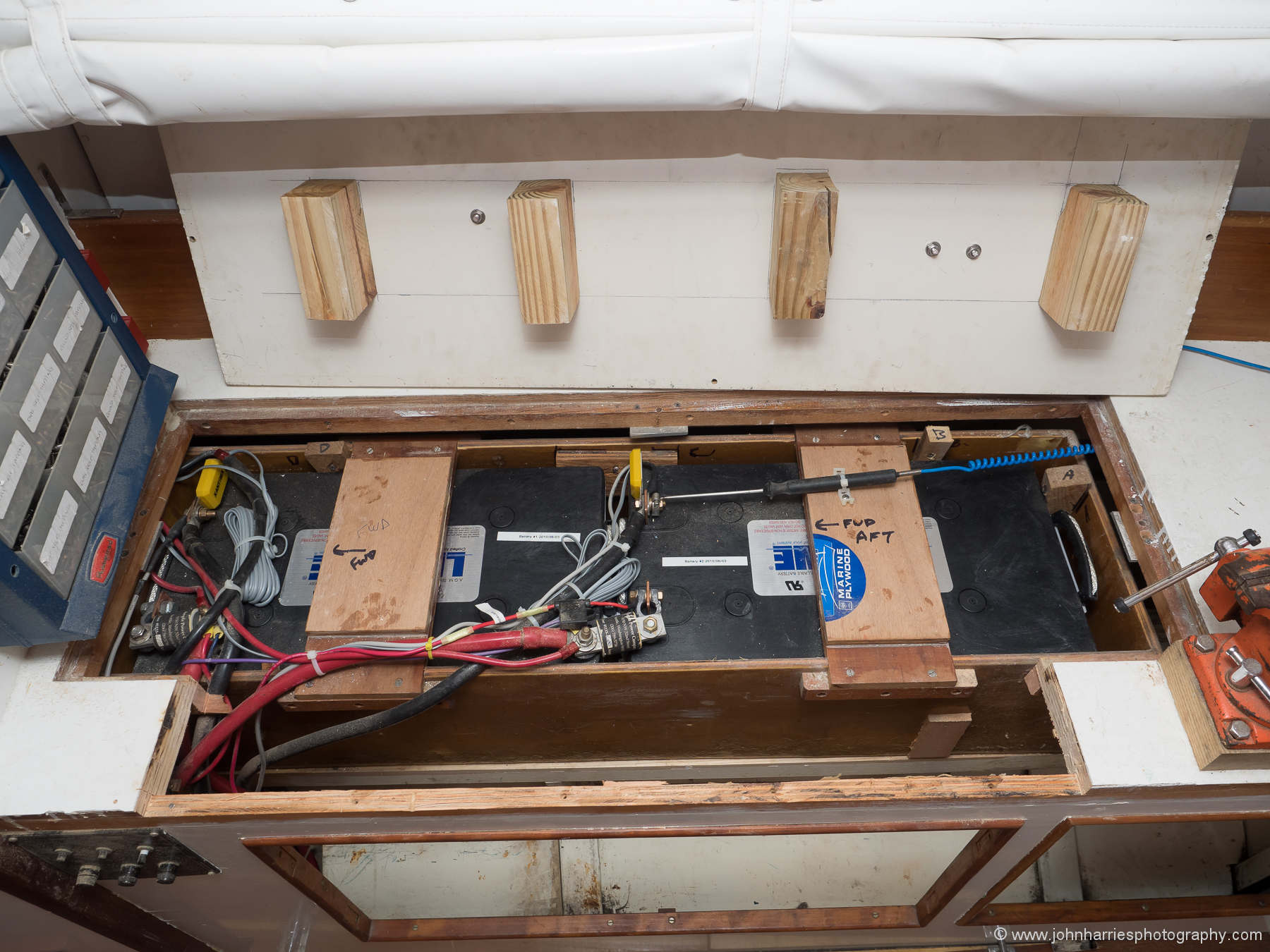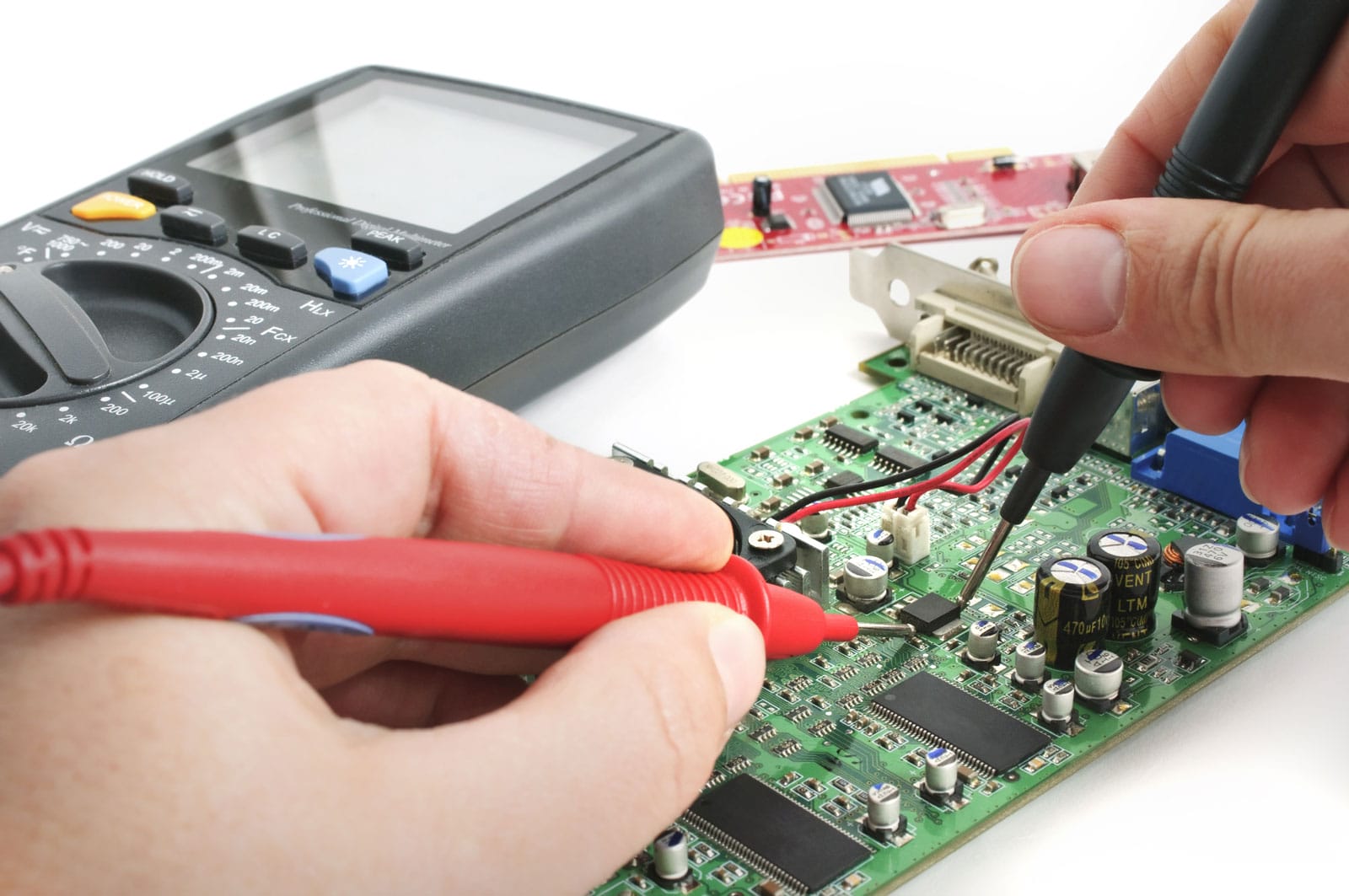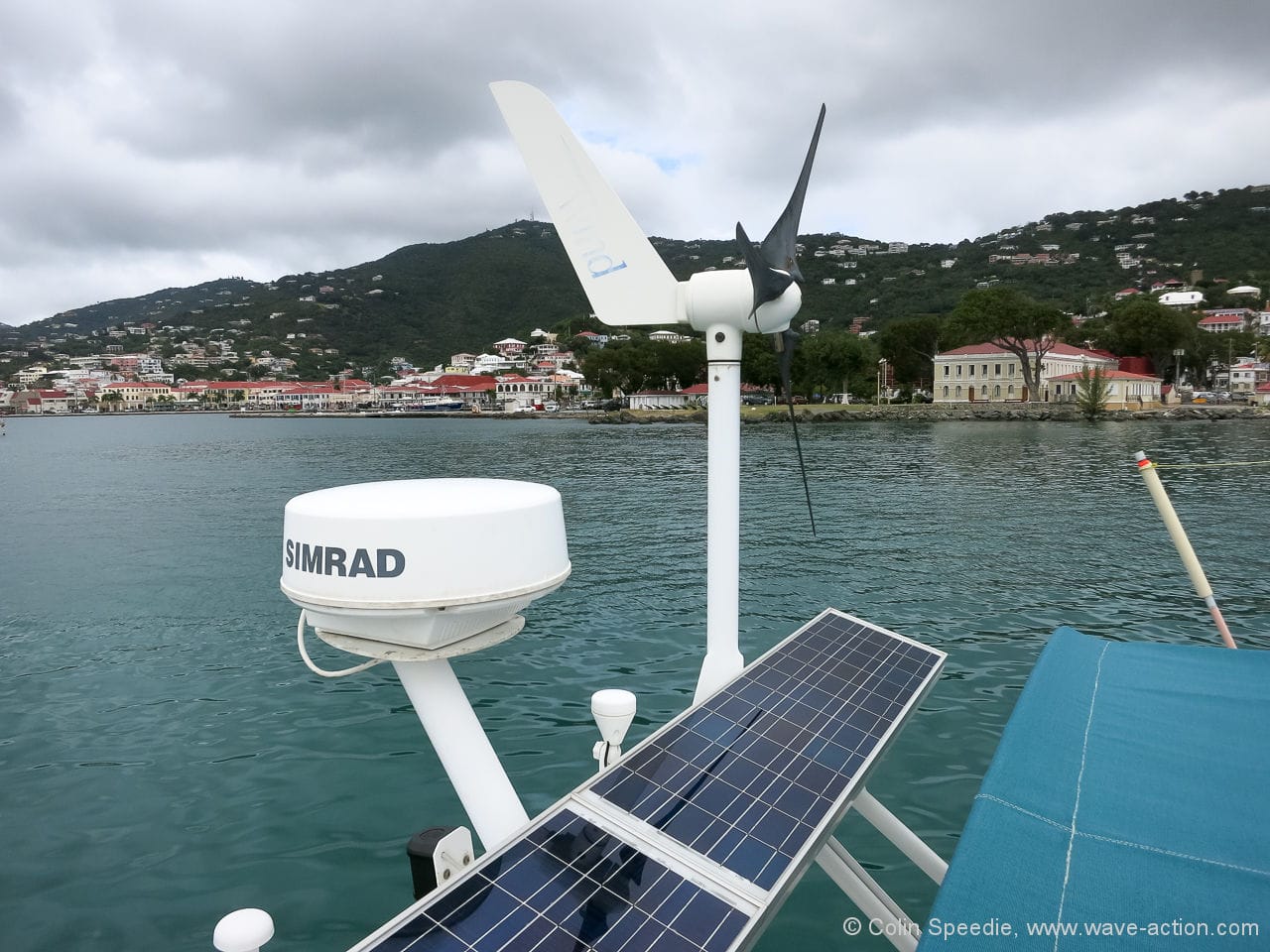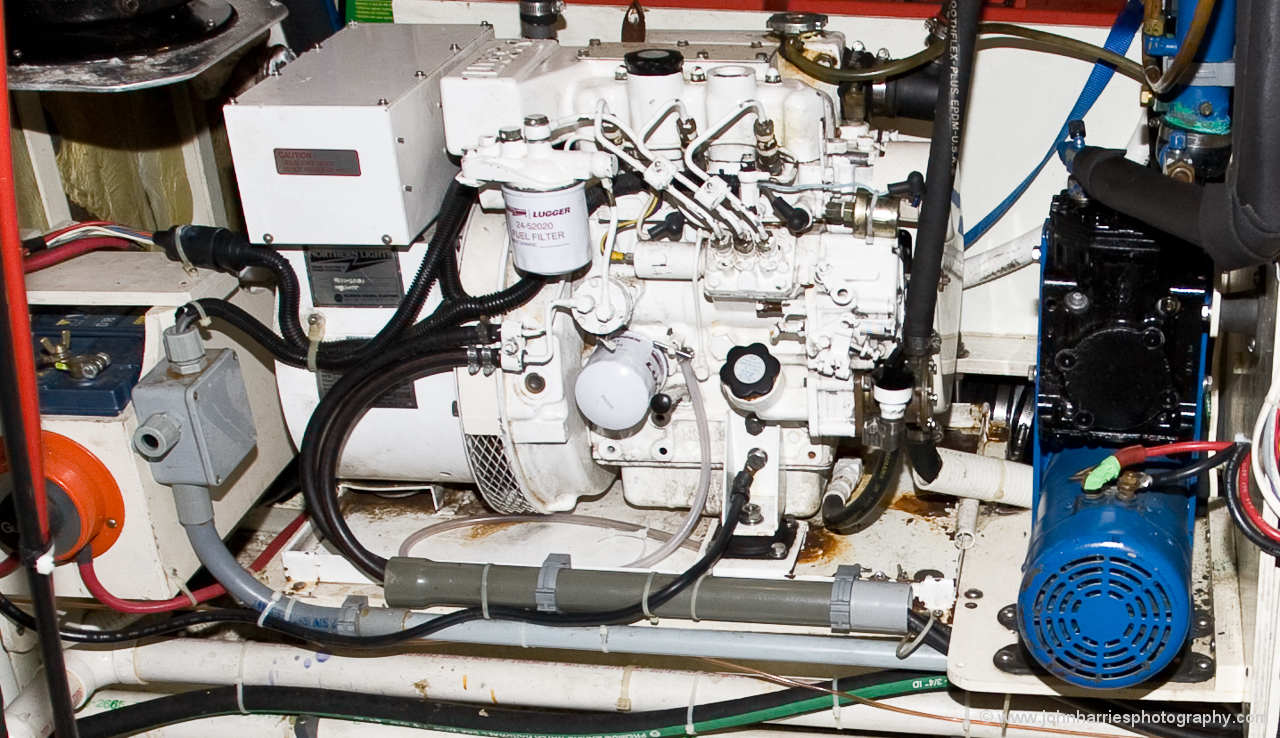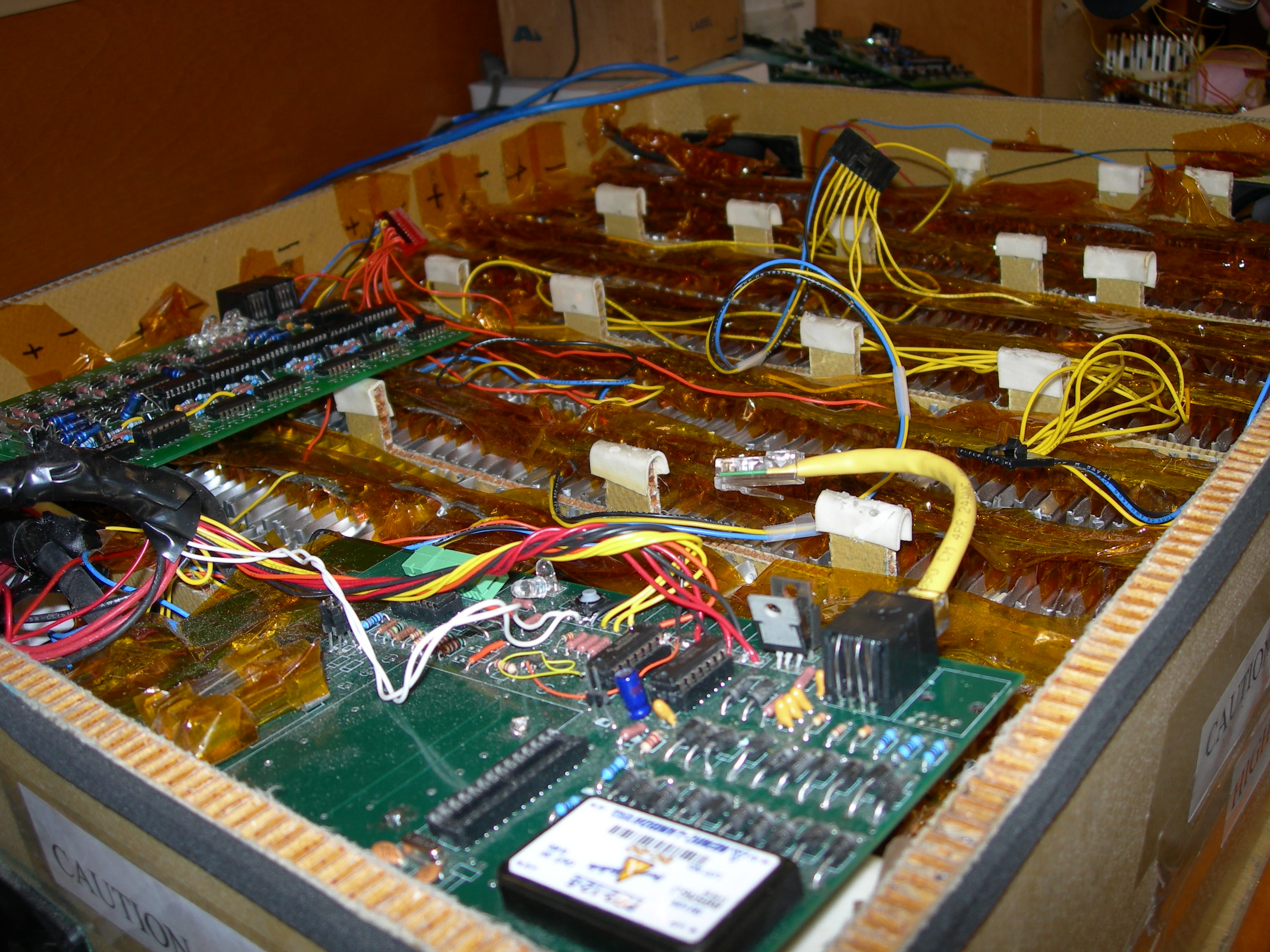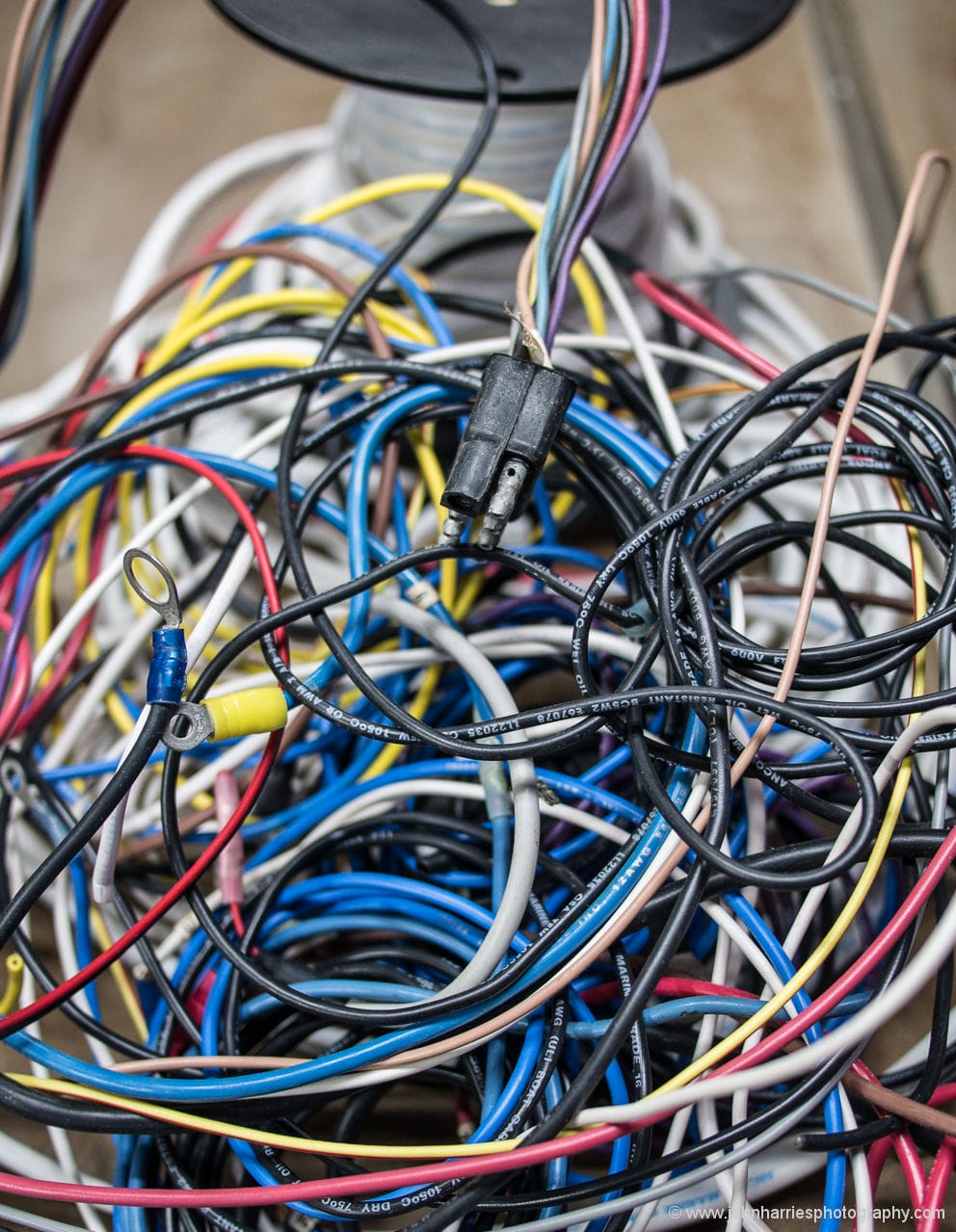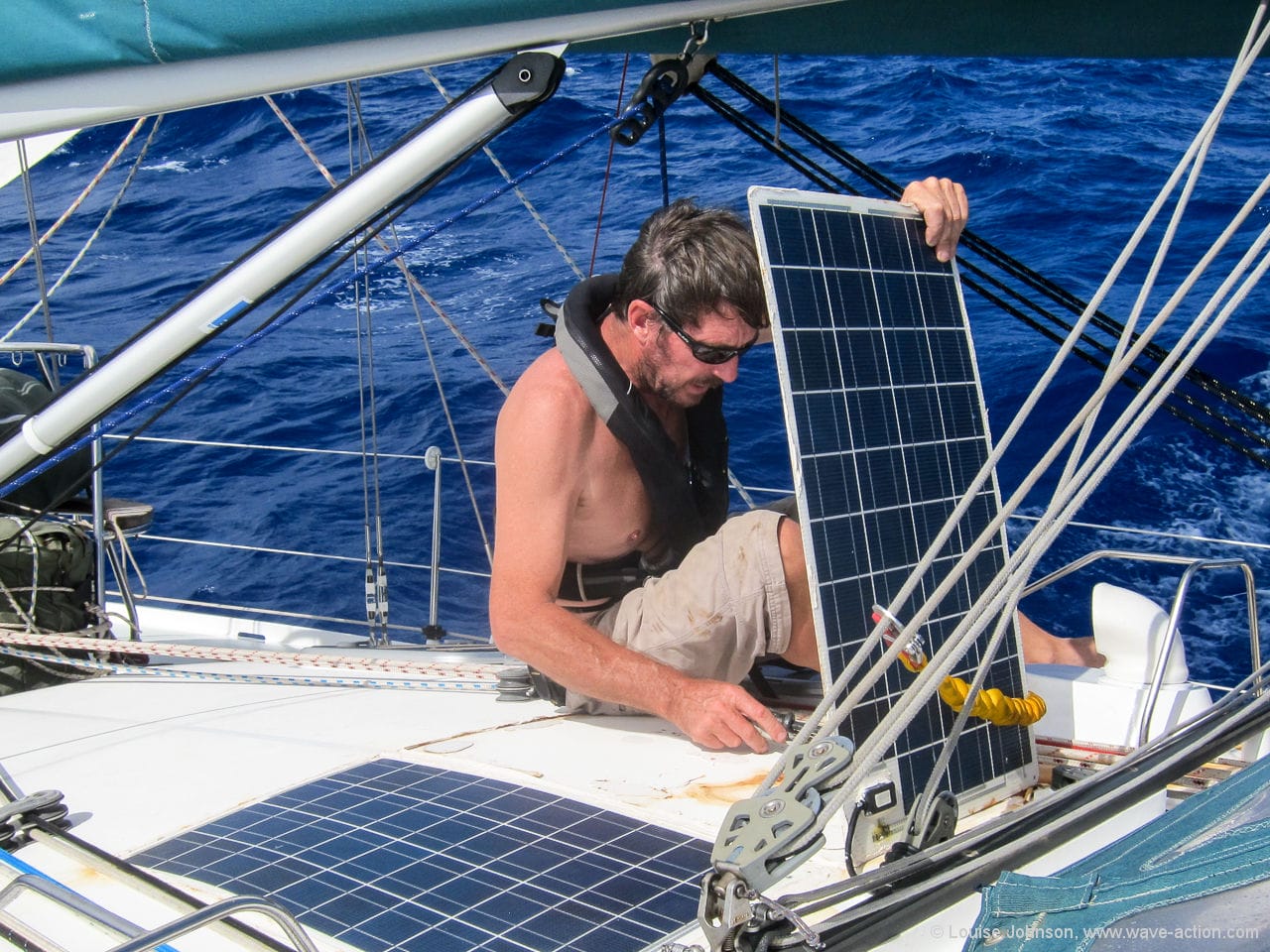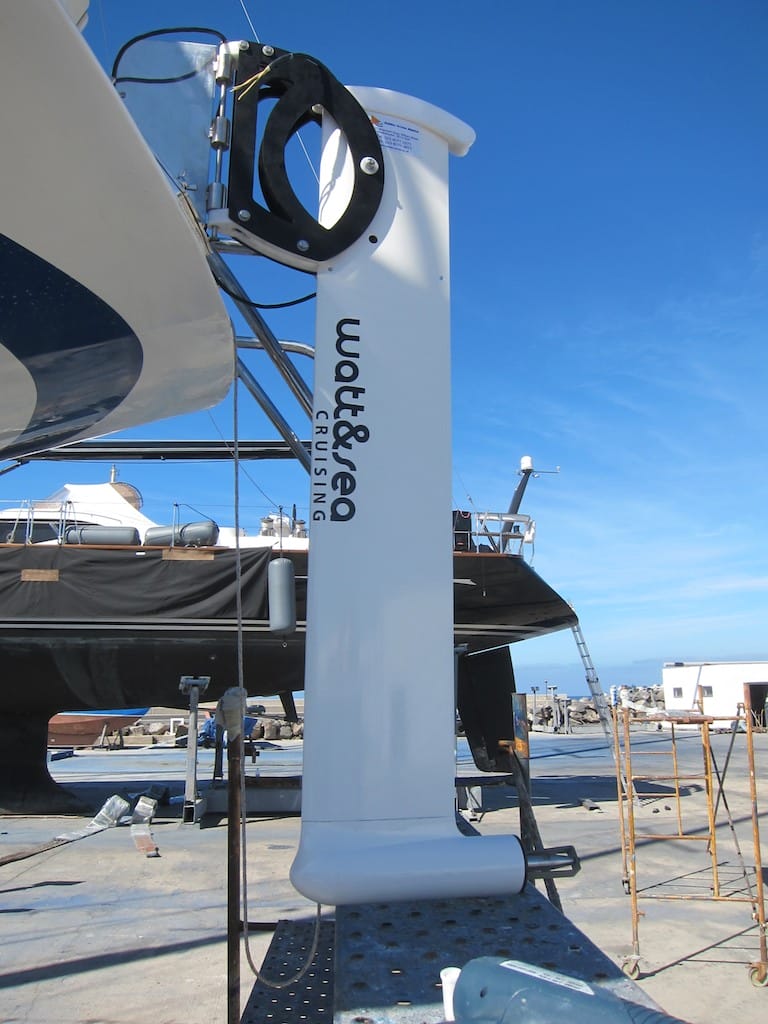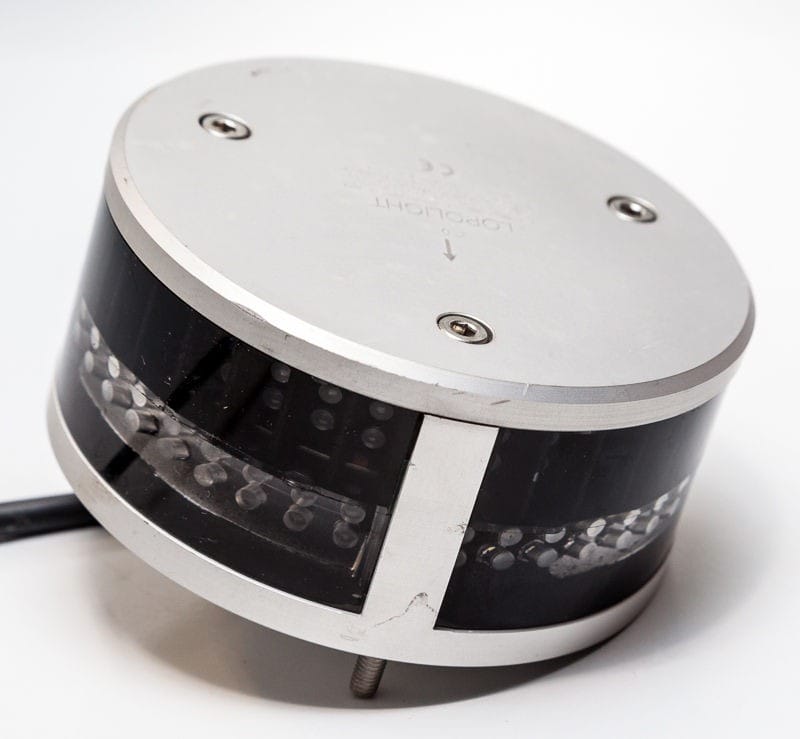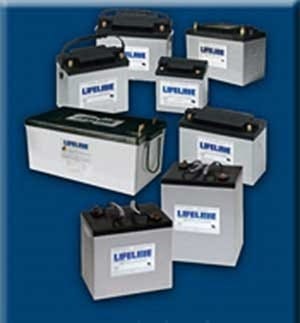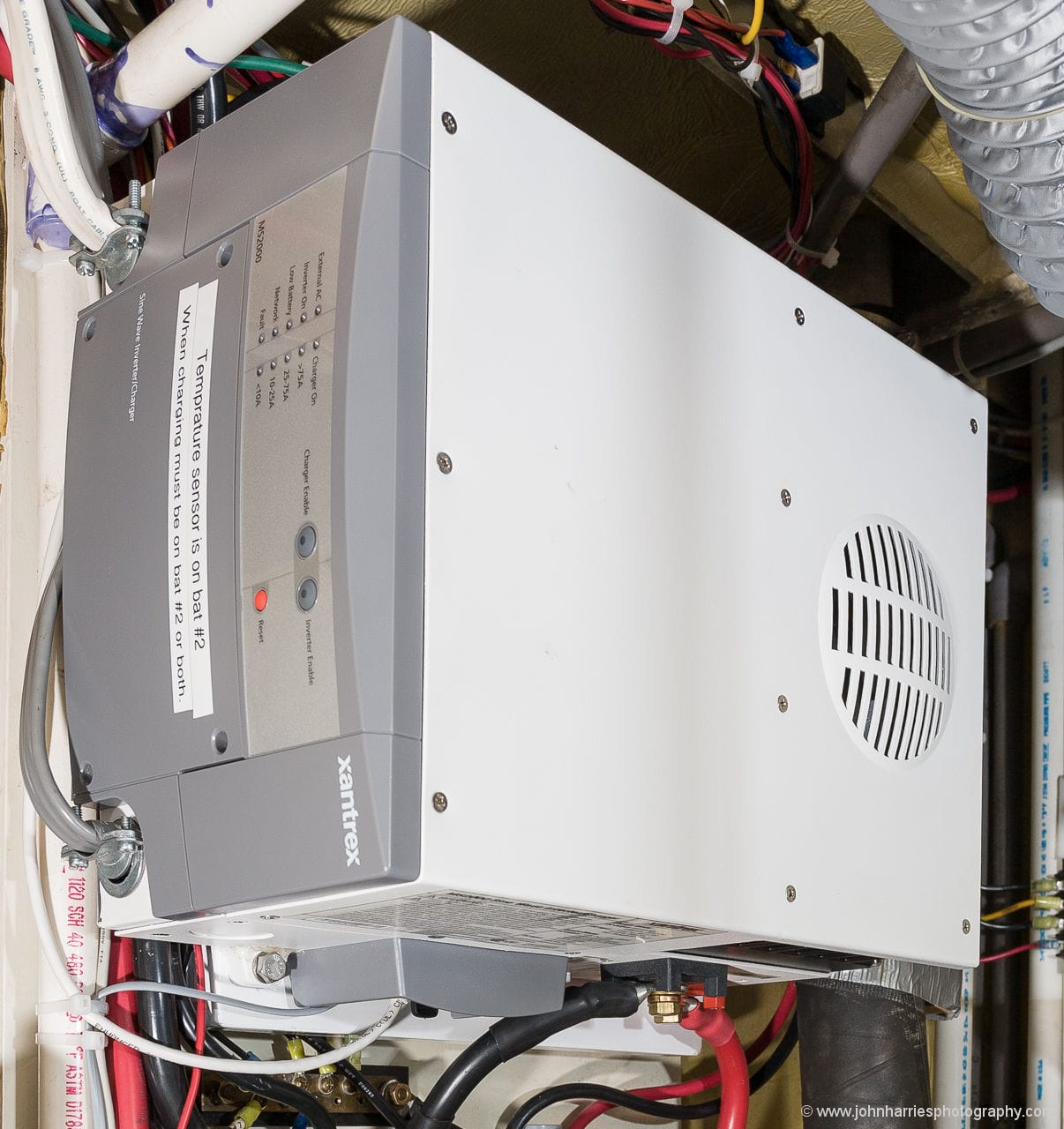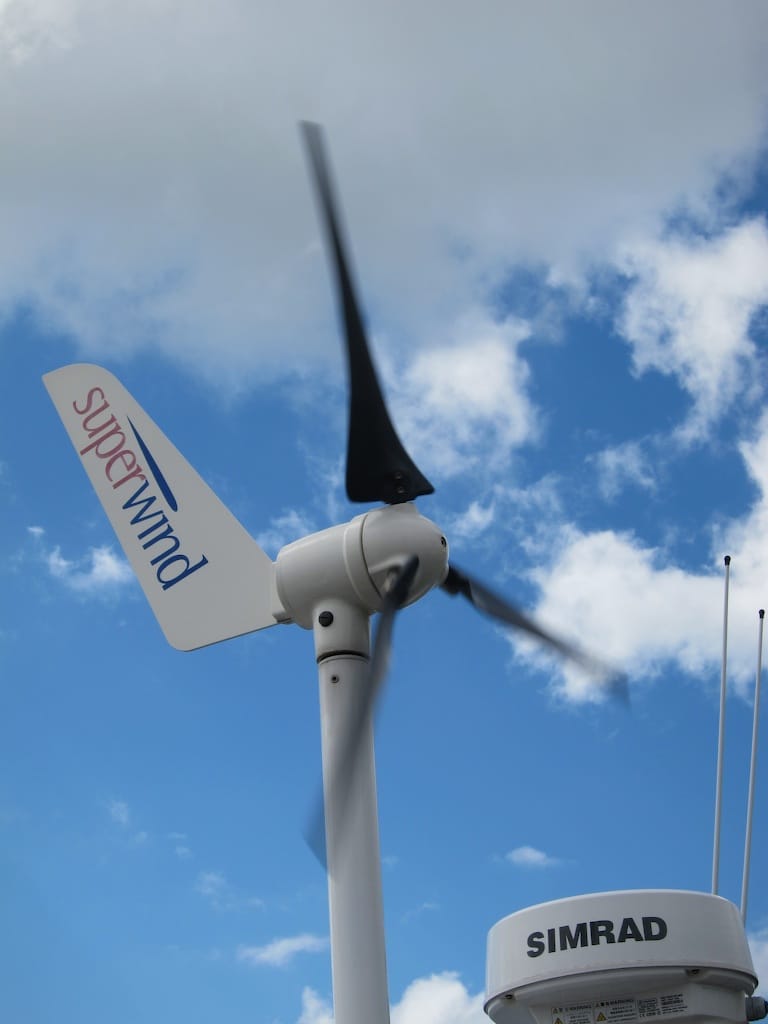Electrical
Click for TOC or scroll down for details
Articles in this topic:
- Wakespeed WS500 Compared To ARCO Zeus—What Matters
- A Coastal Cruiser Reviews A Watt & Sea Hydrogenerator
- Two More Shore Power Safety Upgrades
- Why I Won’t Power Our Boat With a Portable Generator
- Check Your Boat Shore Power System
- Firefly Carbon Foam Batteries Are Great, But Read The Fine Print
- Is Induction Cooking For Boats Practical?
- Battery Bank Size and Generator Run Time, A Case Study
- Battery Options, Part 2—Lead Acid
- Watt & Sea Hydro Generator Review
- Q&A—Are Battery Desulphators a Good Idea?
- Battery Replacement—Resisting The Seduction of Perfection
- The Marine Electronics Industry Has Really Lost The Plot Now
- Living In A 12-Volt World
- Do We Need A Generator?
- Lithium Ion Batteries Explained
- Distributed Power For Cruising Yachts: Is The Vendor Commitment There?
- What’s New In Alternative Energy?
- Hydro Power
- Lopolight—Beware The Time Suck Of Complexity
- Q&A: Mixing Battery Sizes In One Bank
- Inverters And Chargers
- Peace At Last?
-
Wakespeed WS500 Compared To ARCO Zeus—What Matters
42 CommentsReading Time: 8 minutesMembersRead more: Wakespeed WS500 Compared To ARCO Zeus—What MattersA comparison of the two regulators cutting through all the details to what really matters, and including a look at how to evaluate all tech products.
-
A Coastal Cruiser Reviews A Watt & Sea Hydrogenerator
0 CommentsReading Time: 2 minutesFreeRead more: A Coastal Cruiser Reviews A Watt & Sea HydrogeneratorAn honest evaluation from a thinking guy, who carefully evaluated his usage before pulling the trigger on an expensive piece of gear, not a fan-boy video.
-
Two More Shore Power Safety Upgrades
53 CommentsReading Time: 7 minutesMembersRead more: Two More Shore Power Safety UpgradesTwo fixes many production and new-to-us boats will need to make the high-voltage shore power system safe.
-
Why I Won’t Power Our Boat With a Portable Generator
27 CommentsReading Time: 7 minutesMembersRead more: Why I Won’t Power Our Boat With a Portable GeneratorWe often see cruisers using a portable gas generator to feed their boat’s shore power, but is that safe?
-
Check Your Boat Shore Power System
139 CommentsReading Time: 10 minutesMembersRead more: Check Your Boat Shore Power SystemShore power safety is something most of us don’t think about much, but here’s why we should, based on a scary real world experience, and some checks we should all make.
-
Firefly Carbon Foam Batteries Are Great, But Read The Fine Print
41 CommentsReading Time: 4 minutesFreeRead more: Firefly Carbon Foam Batteries Are Great, But Read The Fine PrintThese days we are seeing some great new battery technologies for a live-aboard voyaging boat, but with that we are also seeing some wild claims. It’s important not to let our enthusiasm for the former blind us to the latter.
-
Is Induction Cooking For Boats Practical?
150 CommentsReading Time: 9 minutesMembersRead more: Is Induction Cooking For Boats Practical?We are increasingly hearing about induction cooking on boats being the next big thing, and green, too. But what are the real numbers? John takes real world measurements and a deep dive into the results.
-
Battery Bank Size and Generator Run Time, A Case Study
54 CommentsReading Time: 8 minutesMembersRead more: Battery Bank Size and Generator Run Time, A Case StudyThese days, most boats with AC generators have significant DC (12- or 24-volt) battery banks that need to be charged regularly by the generator. But often that process is horribly inefficient. The good news is that the fix is easy, simple, and relatively inexpensive.
-
Battery Options, Part 2—Lead Acid
95 CommentsReading Time: 10 minutesMembersRead more: Battery Options, Part 2—Lead AcidJohn takes an in-depth look at the benefits and drawbacks of carbon foam, liquid filled, and AGM lead acid batteries, and then reveals his thinking if faced with battery replacement today.
-
Watt & Sea Hydro Generator Review
45 CommentsReading Time: 12 minutesMembersRead more: Watt & Sea Hydro Generator ReviewAre you considering a hydro generator? Here’s everything you need to know, warts and all, from an experienced user.
-
Q&A—Are Battery Desulphators a Good Idea?
17 CommentsReading Time: 4 minutesMembersRead more: Q&A—Are Battery Desulphators a Good Idea?The claims made for battery pulse desulphators seem to make them ideal for voyaging boats. A cheap, easy to install gadget that will dramatically extend your expensive batteries’ lives. What’s not to like? But do they really work? John takes a look.
-
Battery Replacement—Resisting The Seduction of Perfection
37 CommentsReading Time: 5 minutesFreeRead more: Battery Replacement—Resisting The Seduction of PerfectionThe story of how John nearly wasted a bunch of time and money, but finally got a grip of himself. Lots of electrical system recommendations and a caution to make sure that the complexity we choose is right for us.
-
The Marine Electronics Industry Has Really Lost The Plot Now
43 CommentsReading Time: 3 minutesFreeRead more: The Marine Electronics Industry Has Really Lost The Plot NowJohn’s in rant mode. This time it’s marine electronic and electrical technician training that has attracted his ire. But he’s not just throwing rocks, he makes suggestions for improvement too.
-
Living In A 12-Volt World
102 CommentsReading Time: 8 minutesFreeRead more: Living In A 12-Volt WorldAfter voyaging and living aboard their Ovni 435 for 7 years, Colin gives us an update on what electrical kit has worked and what has died, as well as a look at newly available gear he and Louise have installed or are considering.
-
Do We Need A Generator?
68 CommentsReading Time: 3 minutesMembersRead more: Do We Need A Generator?It’s a surprisingly simple decision governed by only four criteria.
-
Lithium Ion Batteries Explained
58 CommentsReading Time: 7 minutesMembersRead more: Lithium Ion Batteries ExplainedMatt examines lithium ion batteries in detail and answers the question, Should I use lithium ion batteries for the house bank on my boat?
-
Distributed Power For Cruising Yachts: Is The Vendor Commitment There?
46 CommentsReading Time: 6 minutesFreeRead more: Distributed Power For Cruising Yachts: Is The Vendor Commitment There?Matt, AAC Technical correspondent, takes a look at an intriguing new technology that holds a lot of promise for cruising boats. But before we all rush to wire our boats this way, there are some questions that the vendors need to answer.
-
What’s New In Alternative Energy?
47 CommentsReading Time: 5 minutesFreeRead more: What’s New In Alternative Energy?Developments in alternative energy systems are coming thick and fast these days, so Colin visited the Southampton Boat Show and has filed this report on the latest in fuel cells, solar panels, and hydro-generators.
-
Hydro Power
39 CommentsReading Time: 4 minutesMembersRead more: Hydro PowerMeeting daily electricity needs using power and solar while at anchor is one thing, but what about when passagemaking? Solar can only do so much and wind generation works best when sailing to windward. So is hydro the answer? Colin talks about the pros and cons of hydro generation.
-
Lopolight—Beware The Time Suck Of Complexity
70 CommentsReading Time: 3 minutesFreeRead more: Lopolight—Beware The Time Suck Of ComplexityLet’s face it, there is never enough time to keep a boat that is actively out there voyaging in perfect condition: Or at least, there is never enough time if we actually want to see the places we visit and have a life outside of boat maintenance. Therefore, we have to prioritize and be careful […]
-
Q&A: Mixing Battery Sizes In One Bank
12 CommentsReading Time: 2 minutesFreeRead more: Q&A: Mixing Battery Sizes In One BankQuestion: Due to space considerations I want to use two 105 amp hour and two 150 amp hour batteries as a house battery bank. Would this arrangement be detrimental to the smaller batteries?
-
Inverters And Chargers
27 CommentsReading Time: 3 minutesFreeRead more: Inverters And ChargersCombined inverters and chargers have become pretty much standard on cruising sailboats but, in fact, that’s a really bad idea. In this chapter we will share why and what to do about it.
-
Peace At Last?
18 CommentsReading Time: 3 minutesFreeRead more: Peace At Last?Readers of my previous post on the subject will be aware that we try to generate as much power as possible via renewable resources – wind and solar. This is driven by a desire to keep the boat as simple as possible, and to avoid the need to run our engine at rest for charging […]

